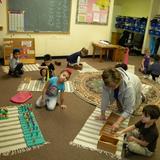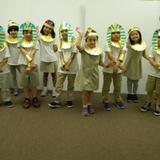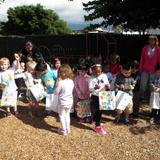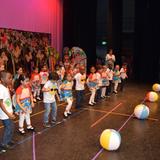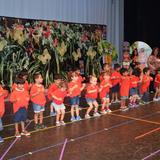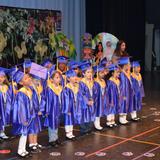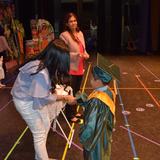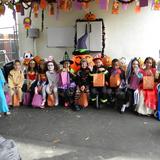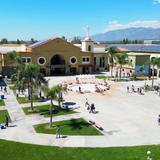We believe that children learn best when they are actively involved in the learning process.
Children not only learn, but thrive in an environment that is specially prepared to meet their physical, cognitive and social needs, and satisfy their intrinsic interests. Our curriculum offers children freedom of choice in a dynamic, energized classroom where learning is tangible.
Montessori School House was established and commenced operations in Rancho Cucamonga in 1988 and is committed to standards of excellence in the quality of the curriculum, the nature of staff interactions with students and parents, and in the overall safety and outcome of the child.
School Overview
School Type
Religious Affiliation
Grades Offered
Grades Prekindergarten-3
Learning Difference Programs
Yes
Learning Programs Supported
Mild Learning Differences
Year Founded
1988
Summer School Offered
Yes
Student Body
Total Students
121 students
Student Body Type
Co-ed
% Students of Color
80%
State avg.: 51%
Students by Grade
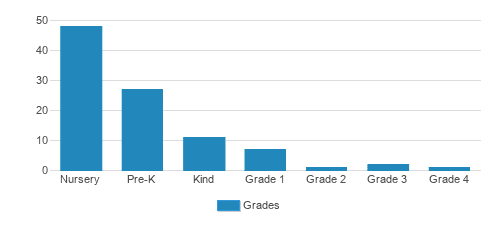
Academics and Faculty
Total Classroom Teachers
5 teachers
Student-Teacher Ratio
24:1
National avg.: 13:1
% Faculty w/Advanced Degree
60%
Average Class Size
12 students
List of Courses Offered
Matriculation DataMatric. Data
Classroom Dress Code
Formal
White top, Khaki Pants and jacket
Tuition and Acceptance Rate
Admission Deadline
None / Rolling
Tuition Notes
Tution fees vary between Pre-School and Elementary
Acceptance Rate
85%
National avg.: 82%
Admissions Director
Shanez Rajasinghe
Admissions Associate
Barbara Lyman
School Notes
- Montessori School House program is based on the educational system founded by Dr. Maria Montessori in 1907. The Montessori learning method allows children to explore and learn at their own pace in a safe and well-structured environment, giving them hands-on interaction with their surroundings. The Montessori philosophy is based on the premise that a child is limited only by his attitude in taking full measure of his own potential. By stimulating and nurturing the child's natural curiosity and encouraging his initiative, this method enables the child to develop a positive and eager attitude toward learning, which he carries throughout life. To develop his physical and intellectual powers to the fullest, the child must have freedom. This is not a license; but rather, freedom achieved through order and self-discipline; liberty within limits of courtesy and consideration; not a rigid, imposed discipline. The teacher's role is that of a mentor and helper. She makes possible an ordered approach to learning in a non-competitive atmosphere. Since success encourages learning, instruction is highly individualized and proceeds at the child's own pace from the known to the unknown.
Source: Verified school update
Frequently Asked Questions
What is the acceptance rate of Montessori School House?
The acceptance rate of Montessori School House is 85%, which is higher than the national average of 81%.
When is the application deadline for Montessori School House?
The application deadline for Montessori School House is rolling (applications are reviewed as they are received year-round).
Recent Articles

Navigating Private School Finances 2026
Essential 2026 guide for parents on private school costs, financial aid, and planning strategies.

Preparation for Standardized Tests & College Admissions 2026
A 2026 guide for private school test prep and college admissions strategies, with insights, trends, and best practices for families and educators.

Mental Health & Wellness Support in Private Schools: Key Questions for Parents
Discover essential questions about mental health & wellness support in private schools before enrolling, with 2026 updates for informed decisions.





